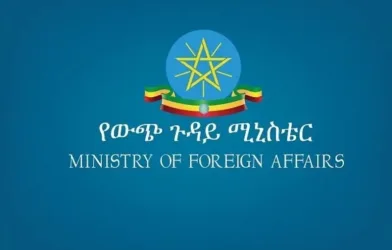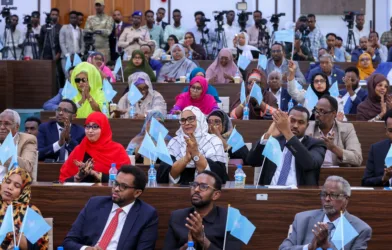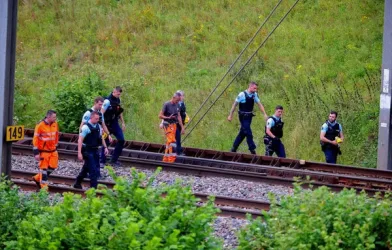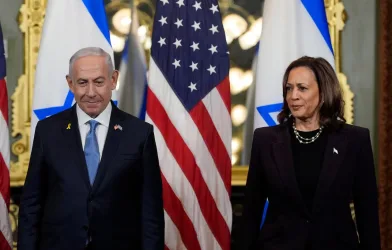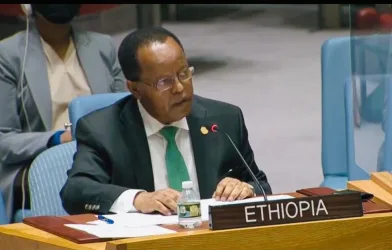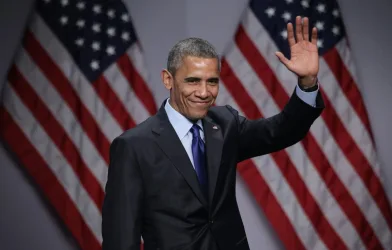Madrid, 27 September 2010
Mr. President,
Secretary of State de La-ig-lesia
Your Excellencies,
Ladies and Gentlemen,
I would like to welcome all of you to this, the 18th Meeting of the International Contact Group for Somalia. I warmly thank the Government of Spain for hosting this very timely meeting in their lovely capital city.
As many of you know, this is not my first participation in a meeting of the International Contact Group. I had, in fact, the privilege of attending several previous meetings in my former capacity as the representative of Tanzania. But this, of course, is the first time I have the honour of chairing this meeting as the Special Representative of the United Nations Secretary-General on Somalia. It is nice to see many friends gathered here again and I look forward to your cooperation and support to sustain the Somali peace process. I wish to make tribute to my predecessor Mr. Ould-Abdallah for his dedicated efforts and lend his service to this group.
This meeting comes at a critical time as we have to make crucial decisions less than a year until the end of the transition in August next year. As we reaffirm our support to the Transitional Federal Government amidst political and security problems which the TFG is currently grappling with; we must also find during this meeting concrete and focused responses to the challenges ahead of the Transitional Federal Government. At the same time, we must convey to the Somali leaders our concerns, but also recommendations for the effective and efficient implementation of the transitional tasks leading to a new representative political dispensation in Somalia, after August 2011. I believe these should be the main thrust of this session of the ICG. Reaching such common ground would help facilitate our engagement and practical support to the Somali peace process.
In this respect, it is a privilege for us to have here President Sheikh Sharif. I believe this is the first meeting of the International Contact Group that he is attending. I would like once more to congratulate him and his Government to have peacefully and friendly addressed the crisis within the TFIs. I commend Prime Minister Shermarke for stepping down for the sake of peace and in the interest of unity within the Transitional Federal Institutions. We look forward to a speedy appointment of a new Prime Minister and his Cabinet and hope that we will see a more united and cohesive Transitional Federal Government. We trust this will enable the TFIs to focus on work that needs to be done by the end of the Transition in August 2011. This is also the sentiment which was echoed at the Mini Summit in New York last week by the UN Secretary-General and
representatives of the International Community. We wish President Sharif and his Government good luck and success in undertaking this obligation.
Dear Friends,
The Transitional Federal Government is facing two pressing challenges: Political and Security. Both are interlinked. Tasks leading to the completion of the Transitional period can only be achieved if a secured and stable environment is established. Likewise, we will not achieve minimum stability in the country unless we make substantive progress on the political front.
We must therefore focus our discussions on the following issues:
Allowing a broad based and more representative Institutions:
To achieve this, we need to assist the TFG to move the Constitution making process forward. The Consultation on the Draft Constitution is the opportunity for us to engage in a meaningful way. It is also the framework within which the TFG could involve groups that remain outside the peace process.
I am comforted by all ongoing initiatives aimed at engaging groups opposed to the TFG and willing to pursue the path of peaceful reconciliation. I look forward to working with the Transitional Federal Institutions and the members of the International Contact Group to strengthen these initiatives. The March 2010 agreement with Ahlu Sunna wal Jama’a was a good start and the inclusion of five ministers in the cabinet is an important gesture. I consulted with the President this morning as I had heard that ASWJ is reneging on the agreement reached with the TFG. The President assured me that the issue will be resolved quickly. However, more needs to be done to consolidate this agreement and the international community must provide the necessary support. The Galckayo Agreement with Puntland on political and security cooperation and the Kampala Framework on piracy that include authorities of Puntland, Somaliland and the TFG also need to be implemented. In the meantime, the TFG must continue efforts to enlarge its legitimacy by reaching out to community leaders and elders beyond Mogadishu, populations in the south central such as Galmuduug, the business community and the Diaspora. The TFG must also be assisted to build civilian institutions for good governance including the provision of basic services to the Somali people.
2 Structuring and sustaining the Security Sector
While the political process should map out the way, security remains the key issue. The foreign-backed insurgents are determined to destabilize all efforts by the Somalis and the international community to ensure peace and security in Somalia and the region. The suicide bombings in Kampala on 11 July demonstrated their ability to carry out violent acts outside Somalia’s borders.
The African Union Mission in Somalia (AMISOM) continues to play a crucial role in Mogadishu, where it safeguards the Transitional Institutions and vital installations. AMISOM is discharging its responsibilities under very difficult conditions, often with limited resources. We support the decision taken by the AU Summit to increase the strength of AMISOM to its mandated capacity of 8,000 troops as soon as possible. We also support the decision by the IGAD Heads of State authorizing 20,000 troops to meet the growing threat of the insurgents and to stabilize the country as a whole. We now need to ensure that both military planning and political strategy are matched and support the plans and requirements for the remainder of the transitional process. The envisaged political outreach beyond Mogadishu will require a secure territorial environment which the TFG forces and AMISOM need to provide. We look forward to proposals by the AU Peace and Security Council being brought forward to the UN Security Council next month. We hope the Council will also consider enhancing AMISOM’s capability to protect civilians.
As you may be aware, AMISOM alone would not provide the needed stability. We need the involvement of the Somali Security Forces. The latter, needs to be structured and sustained. I commend partners who have helped to train and equip the Somali security forces. However, the Somali security forces need additional support, in terms of command and control, medical and structural support as well as regular payments of stipends. I encourage the TFG to consider and adopt at the earliest opportunity, the National Security Strategy, the National Security and Stabilization Plan and to approve the Security Sector Assessment which our partners need in order to begin the work set out by the Joint Security Committee in August.
All these efforts require our political and financial support. One way of doing this is through ongoing programme and projects. But lessons learned in the past suggest that our processes could unnecessary delay a process that is running out of time. We must then explore the best way to provide this assistance to the TFG. I also call upon those partners with the necessary capabilities to increase their support to AMISOM.
I met with President Yoweri Kaguta Museveni of Uganda, President Jakaya Kikwete of Tanzania, President Isaias Afwerky of Eritrea, and Prime Minister Meles Zenawi of Ethiopia. All emphasize the need to strengthen political dialogue as well as to provide adequate support to the Somali Security Forces. I have been instructed by the SG to work closely and to strengthen the partnership with the AU and IGAD. The Secretary General also underscored three points including:
(i) support to the Somalia Government and the African Union Mission in Somalia, AMISOM;
(ii) the implementation of humanitarian and recovery activities followed by the establishment of the light UN footprint;
(iii) and finally the deployment of the UN peacekeeping operation at the appropriate time, subject to a decision by the UN Security Council.
Dear Friends,
Our successful efforts in rebuilding Somalia would allow preventing a further deterioration of the humanitarian situation. The extended political space and a more secure environment will facilitate the humanitarian access throughout Somalia, especially in areas where they suffer deprivation from basic necessities and widespread violation of human rights.
Follow-up arrangements have been made for the Istanbul Conference on Somalia, held in May 2010, at which the international community and the TFG reiterated the commitment to improve the lives and security of the Somali people, foster reconciliation, increase access to basic services, initiate reconstruction activities and set Somalia on the path of sustainable peace and development. This initiative will also permit tapping the resources and creativity of the vibrant Somali private sector.
I welcome the recent elections in Somaliland, which were very encouraging. I look forward to working with the Somaliland authorities to help them in their efforts to consolidate stability. The instability in the disputed region of Sool and Sanaag continues to be an issue of concern and I look forward to engaging all sides with a view to finding a political solution. While Puntland continues to face security and economic challenges, I look forward to engaging them on a variety of issues with a view to helping improve the situation on the ground.
The TFG remains the main partner with which the international community can work with to advance national reconciliation, peace and stability in Somalia. We have all seen how the international community has rallied behind the governments in Iraq and Afghanistan. Somalia is no exception; it requires similar massive interventions. The TFG and the international community must work closely together if Somalia is to emerge from the present crisis.
Thank you.
SOMALIA: SRSG’s Statement to the International Contact Group:
Published: September 27, 2010


